
A baby eagle executes its first shaky flight from the nest, or fledges, at around 12 weeks of age, but its first period away from home is fraught with peril, as it often ends up on the ground where it is vulnerable to collisions with cars and trucks.
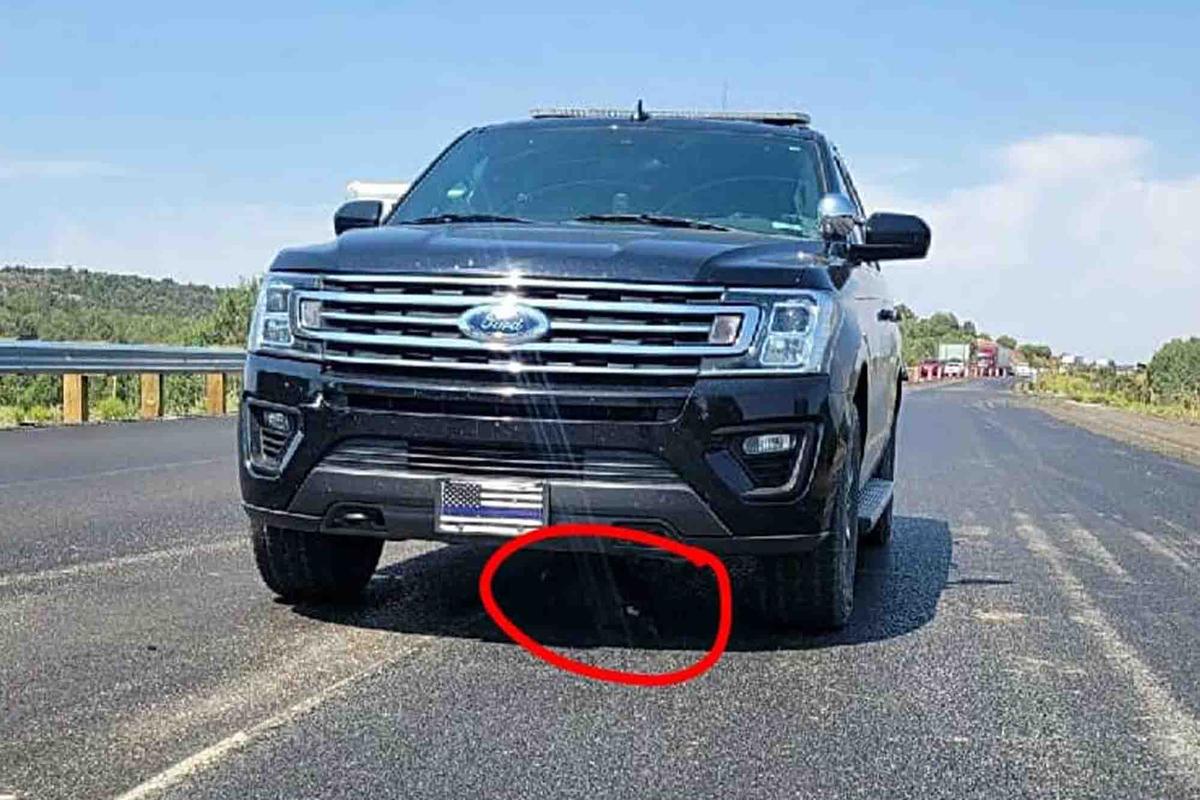
An eaglet takes shelter under Sgt. Giralde’s vehicle. Courtesy of Mohave County Sheriff’s Office
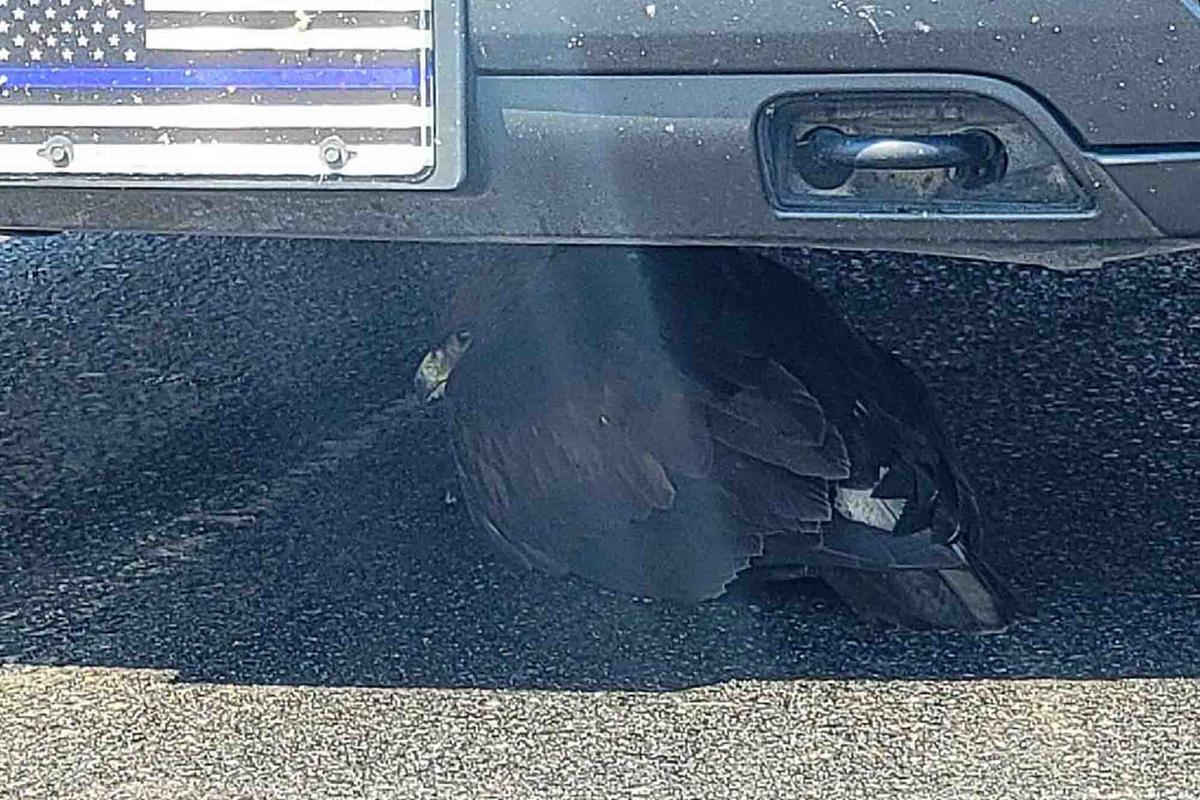
Sgt. Giralde snapped a photo of the eagle and sent it to the Arizona Raptor Center, who confirmed it was a baby golden eagle and sent some of their staff in Kingman to retrieve it. Meanwhile, they answered the question Sgt. Giralde had posed, whether he could grab the eagle and bring it into his unit to cool off in the AC.
They tried moving the construction worker’s vehicle. The eaglet “did not appear concerned with me as I got within feet of it, trying to get it to move away from the live traffic lane,” Sgt. Giralde said. “At that point, it went under my unit.” Lying on the ground, he added, it “appeared to be tired.”
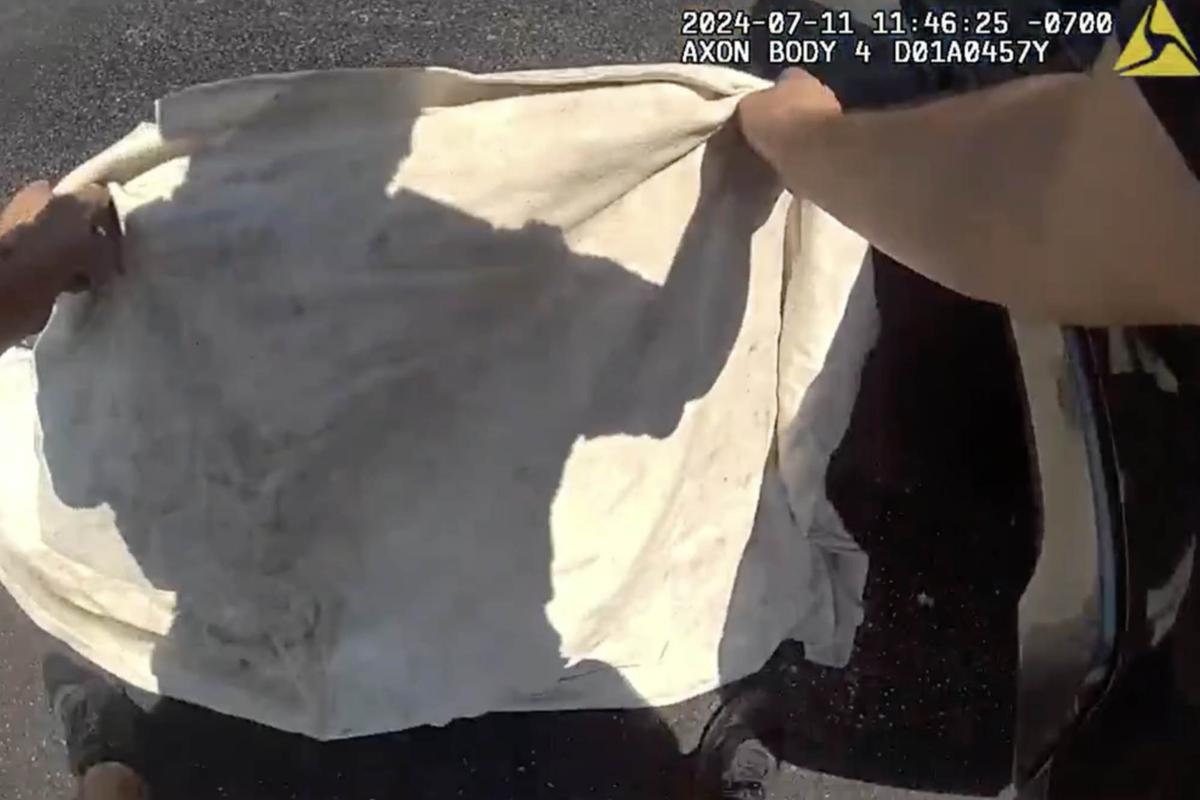
A baby raptor’s crucial first period away from the nest is when the eaglet perfects its flight skills and starts to hunt insects and other small game to supplement the temporary meals still being supplied by nearby parents, until the baby becomes independent and flies off to fend for itself.
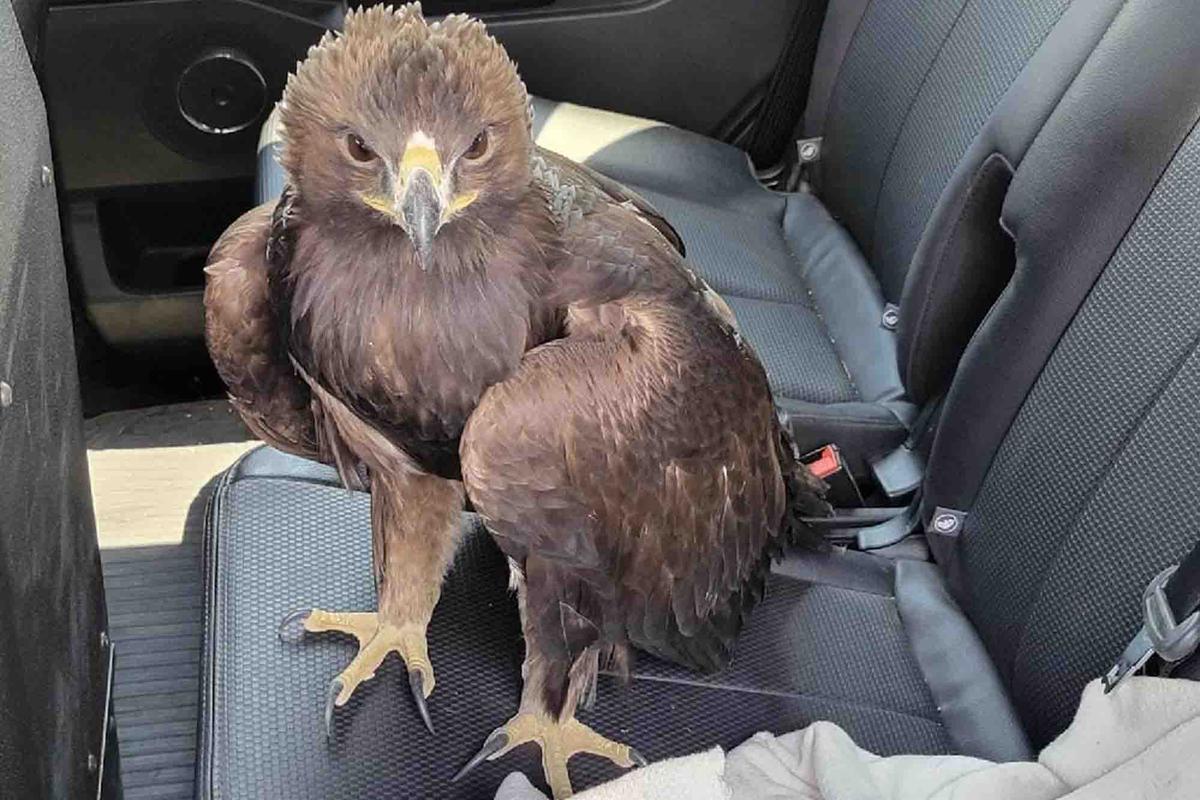
The eaglet inside Sgt. Giralde’s vehicle. Courtesy of Mohave County Sheriff’s Office
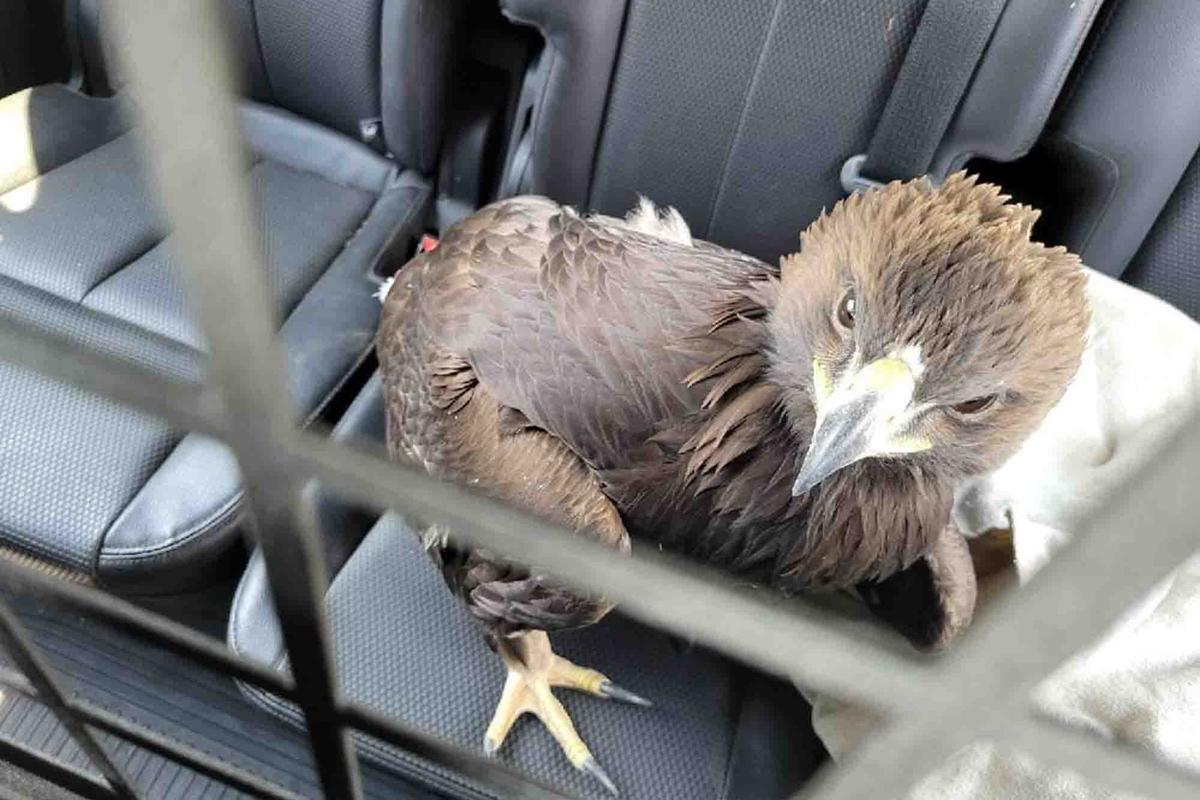
Sgt. Giralde said the baby raptor was taken back to the Raptor Center’s rehabilitation center where it would be taught how to hunt. Courtesy of Mohave County Sheriff’s Office

The danger is often great during this period, and the actions the sergeant took that day were critical. Game and wildlife officials strongly advise people normally to not interfere with a baby raptor struggling or grounded and will have park rangers step in if necessary. Although the majority of eaglets that fledge will not survive, this period is where they must learn to hunt solo to stay alive.